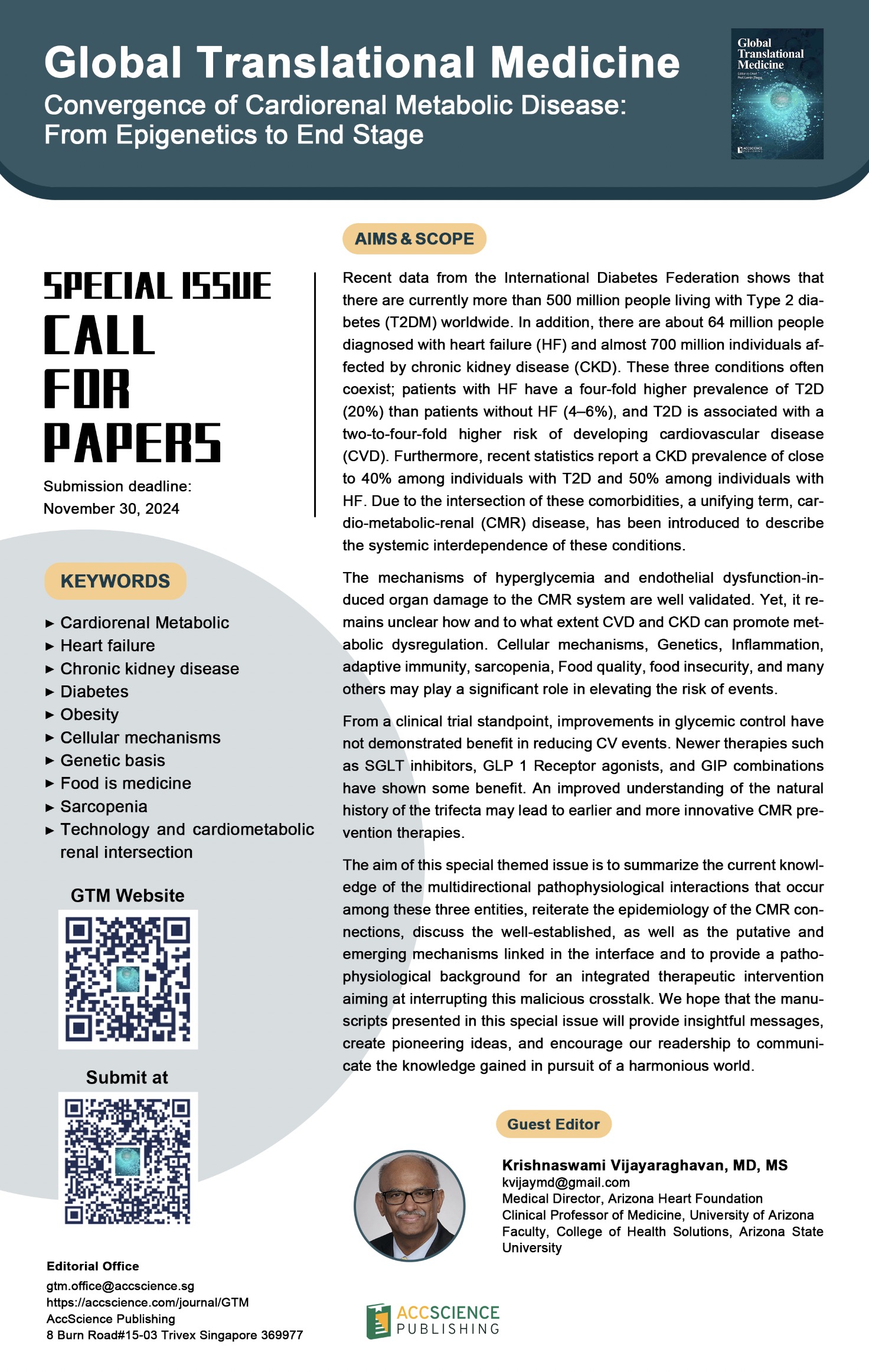
Medical Director, Arizona Heart Foundation/ Clinical Professor of Medicine, University of Arizona/ Faculty, College of Health Solutions, Arizona State Universitygenetic heart defects; heart rhythm disorders; heart failure; coronary artery disease; Cardiorenal Metabolic disease; diabetes and complex lipid disorders

Recent data from the International Diabetes Federation shows that there are currently more than 500 million people living with Type 2 diabetes (T2DM) worldwide. In addition, there are about 64 million people diagnosed with heart failure (HF) and almost 700 million individuals affected by chronic kidney disease (CKD). These three conditions often coexist; patients with HF have a four-fold higher prevalence of T2D (20%) than patients without HF (4–6%), and T2D is associated with a two-to-four-fold higher risk of developing cardiovascular disease (CVD). Furthermore, recent statistics report a CKD prevalence of close to 40% among individuals with T2D and 50% among individuals with HF. Due to the intersection of these comorbidities, a unifying term, cardio-metabolic-renal (CMR) disease, has been introduced to describe the systemic interdependence of these conditions.
The mechanisms of hyperglycemia and endothelial dysfunction-induced organ damage to the CMR system are well validated. Yet, it remains unclear how and to what extent CVD and CKD can promote metabolic dysregulation. Cellular mechanisms, Genetics, Inflammation, adaptive immunity, sarcopenia, Food quality, food insecurity, and many others may play a significant role in elevating the risk of events.
From a clinical trial standpoint, improvements in glycemic control have not demonstrated benefit in reducing CV events. Newer therapies such as SGLT inhibitors, GLP 1 Receptor agonists, and GIP combinations have shown some benefit. An improved understanding of the natural history of the trifecta may lead to earlier and more innovative CMR prevention therapies.
The aim of this special themed issue is to summarize the current knowledge of the multidirectional pathophysiological interactions that occur among these three entities, reiterate the epidemiology of the CMR connections, discuss the well-established, as well as the putative and emerging mechanisms linked in the interface and to provide a pathophysiological background for an integrated therapeutic intervention aiming at interrupting this malicious crosstalk. We hope that the manuscripts presented in this special issue will provide insightful messages, create pioneering ideas, and encourage our readership to communicate the knowledge gained in pursuit of a harmonious world.
Author registration and submission: https://accscience.com/user/login. Submit your paper along with a cover letter, including the special issue title. Your paper will undergo a fair peer review and be published immediately after acceptance and will be available to an international audience.
State-of-the-art perspective: Advances in incretin-based therapy targeting progression of diabetes and cardiovascular-kidney-metabolic syndrome
Inflammation and cardiovascular disease – Part I: Mechanisms and biomarkers
Inflammation and cardiovascular disease – Part II: Anti-inflammatory therapy in cardiovascular disease

